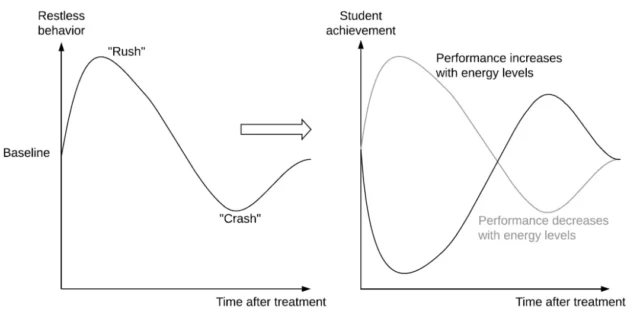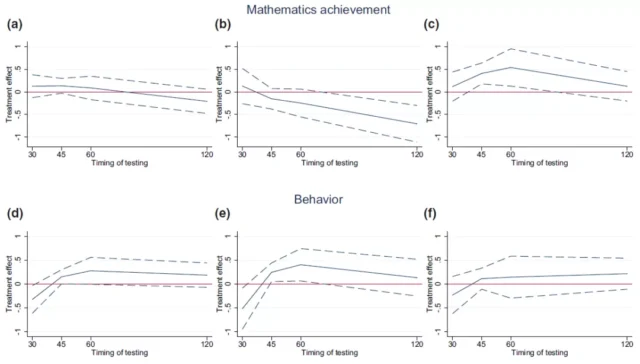Sugary beverages have a greater negative impact on boys
- Why Botulinum Toxin Reigns as One of the Deadliest Poisons?
- FDA Approves Pfizer’s One-Time Gene Therapy for Hemophilia B: $3.5 Million per Dose
- Aspirin: Study Finds Greater Benefits for These Colorectal Cancer Patients
- Cancer Can Occur Without Genetic Mutations?
- Statins Lower Blood Lipids: How Long is a Course?
- Warning: Smartwatch Blood Sugar Measurement Deemed Dangerous
Sugary beverages have a greater negative impact on boys, and “sugar-free” beverages have a greater negative impact on girls
- Red Yeast Rice Scare Grips Japan: Over 114 Hospitalized and 5 Deaths
- Long COVID Brain Fog: Blood-Brain Barrier Damage and Persistent Inflammation
- FDA has mandated a top-level black box warning for all marketed CAR-T therapies
- Can people with high blood pressure eat peanuts?
- What is the difference between dopamine and dobutamine?
- How long can the patient live after heart stent surgery?
Sugary beverages have a greater negative impact on boys, and “sugar-free” beverages have a greater negative impact on girls.
The first randomized double-blind experiment showed that the influence of sugar-sweetened beverages on the human body may be “patriarchal”
As we all know, excessive intake of sugar is the main cause of global obesity, and it is also a major risk factor for metabolic syndromes such as type 2 diabetes, hypertension, cardiovascular disease, and many common cancers and tooth decay.
However, sugary diets still inevitably become an important part of the daily diet of many people, including children. The effect of sugar-sweetened diet on adult health has been extensively studied, but how it affects children’s brain health in a short period of time is still unknown.
Recently, researchers from the University of Leuven in Belgium published a research paper titled: “Sugar rush or sugar crash? Experimental evidence on the impact of sugary drinks in the classroom” in the journal Health Economics.
This randomized, double-blind, placebo-controlled trial investigated the effect of sugar-sweetened beverages on the behavior and arithmetic performance of preschool children. The results of the study showed that sugar-sweetened beverages have a greater negative impact on boys, and “sugar-free” beverages have a greater negative impact on girls. This means that there may be gender differences in the body’s response to glucose.

In this study, researchers conducted two randomized, double-blind, placebo-controlled trials in a kindergarten classroom environment involving a total of 462 children in 25 classes in the Flanders community in Belgium.
Half of the children were assigned to the treatment group and were given 150 ml of a lemon-flavored soft drink containing 35 grams of liquid sugar; the other half were given 150 ml of a so-called “sugar-free” drink supplemented with aspartame and acesulfame K.
Researchers collected test scores and behavioral assessments before and after the children drank beverages and at different times.
The first randomized trial included 10 preschool classes. The children were tested for arithmetic before drinking a drink, and then tested again 45 minutes after drinking the drink.
The second randomized trial included 15 preschool classes. The children also took a math test before drinking a drink, and then took the test again after 30 minutes, 1 hour, or 2 hours.
The researchers said that these time points include the time course of sugar metabolism after ingesting sugar-sweetened beverages.
The test results show the heterogeneous influence of gender and time.

In terms of behavior, the researchers found no significant impact on girls; the boy’s response was to become more disturbed. Over time, sugary drinks will have an initial “relaxing” effect, and then the boy will become more restless.
In terms of math performance, the results showed that boys and girls reacted oppositely. Over time, drinking sugar-sweetened beverages had a positive impact on girls’ classroom performance and mathematics scores, but this phenomenon only appeared after 45 minutes and disappeared after 2 hours; the adverse effects on boys were It is still present and significant after 60 minutes. However, in the “sweet-free” beverage group, compared with boys, girls’ arithmetic performance dropped even more.

Researchers say that there may be key gender differences in the human body’s response to glucose, at least in childhood, when the brain consumes energy more easily than adults.
Researchers are still not sure why sugar-sweetened beverages reduce boys’ arithmetic performance, but they suspect that this is related to stress, sugar intake and student performance. Although there is no evidence for preschoolers, the difference in cortisol levels between boys and girls after drinking sugar-sweetened beverages provides a reasonable explanation for this finding. In addition, the restlessness of boys after drinking sugar-sweetened beverages may also cause some distractions.
Since this study is the first of its kind, its results cannot be compared with any other studies.
However, the gender differences between preschool children found in this study were established in both trials, and both trials were strictly designed, so they should be taken seriously and investigated further.
If we want to truly understand how children’s diet affects their learning opportunities, finding more information will be crucial.
In this study, all children in the sugar-sweetened beverage group received the same dose of sugar. The researchers say that replicating the current study at different doses may help determine the “threshold” of sugar that triggers the effects in this study.
Previously, a study published in Journal Experimental Biology by researchers from the University of California, Riverside showed that young rats fed an unhealthy diet had a significant decrease in the abundance and diversity of beneficial bacteria in their intestines as adults.

The study tells us that the high-fat and high-sugar diet eaten early in life will change the balance of intestinal flora for a long time, even if it changes to a healthy diet in adulthood, it will still be affected.
Paper link:
https://doi.org/10.1002/hec.4444
https://jeb.biologists.org/content/early/2021/01/10/jeb.239699
(source:internet, reference only)
Disclaimer of medicaltrend.org
Important Note: The information provided is for informational purposes only and should not be considered as medical advice.



